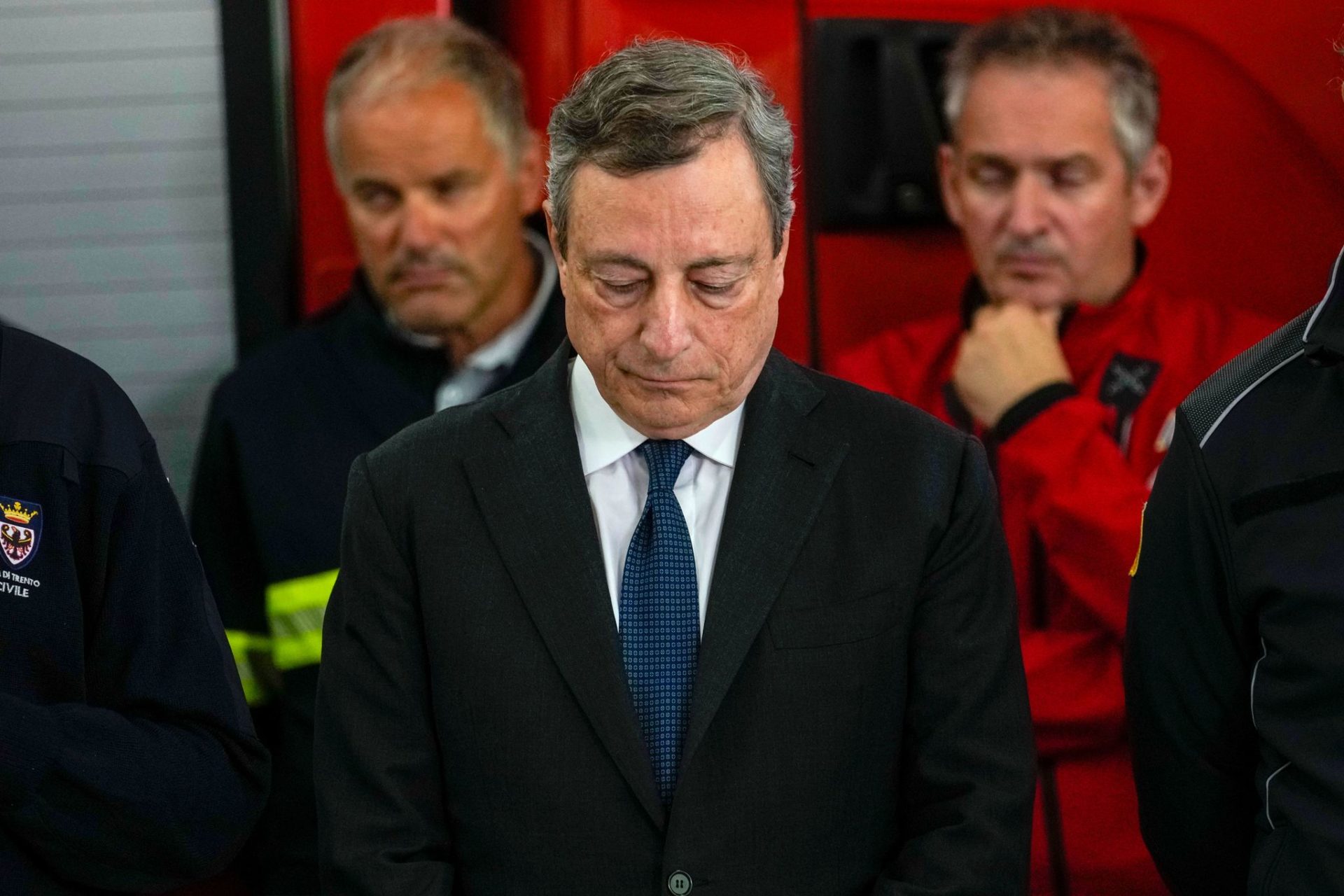 Have the article read by OpenAI (Beta). Please note that AI translations may take some time to process.
Have the article read by OpenAI (Beta). Please note that AI translations may take some time to process.Heat wave punishes Europe with extreme temperatures
Madrid (EFE) – The heat wave has been hitting southern Europe for days. This week, a warm air mass from the Sahara reaches the north, where record temperatures are expected. The heat wave continues to punish Spain and Portugal with temperatures of 40 degrees Celsius and numerous forest fires have already devastated thousands of hectares.
In Spain, the heat wave suffered by almost the entire country is in its ninth day. It is expected that, after a brief relief on Tuesday, a new rise in temperatures will start on Wednesday, leading to a potential continuation of this episode, which is already considered to be long-lasting.
Meanwhile, fires continue to devastate thousands of hectares in Spain. Forest fires all over the country are keeping rural populations in suspense, while a special unit with the support of the army tries to suffocate the flames. A brigade member died this Sunday when he was surrounded by fire in Zamora. (July 17 and 18)
Bulgaria and North Macedonia sign protocol on EU talks
Sofia (dpa) – After a long dispute, North Macedonia and its EU neighbour Bulgaria have agreed on a roadmap for the start of North Macedonia’s EU accession negotiations. The foreign ministers of both countries, Teodora Gentschowska and Bujar Osmani, signed a protocol to this effect in the Bulgarian capital Sofia on Sunday. The protocol is intended to clarify outstanding bilateral issues, particularly with regard to the interpretation of history.
North Macedonia has been waiting for the opening of the negotiations since 2008. Because of a dispute, Bulgaria has been blocking the start of EU negotiations with its small neighbouring country since the end of 2020. Among other things, this dispute centers around the interpretation the countries’ shared history and the rights of ethnic Bulgarians in North Macedonia. The French EU presidency, which held office until the end of June, drew up a compromise proposal. On Saturday, the North Macedonian parliament in Skopje approved the EU Commission’s proposed negotiating framework for accession talks.
The protocol, signed in Sofia on Sunday, will reportedly contain approaches and deadlines for settling, among other things, the dispute over the interpretation of history. The text of the document is to be published on Tuesday. (July 17)
Croats know about the Conference on the Future of Europe, but most of them do not know about its conclusions
Zagreb (Hina) – In general, Croatians are aware of the European Union’s Conference on the Future of Europe. However, according to the findings of a survey conducted by market researchers Ipsos and Hina, a vast majority do not know anything about the conclusions of the Conference.
As many as 60% of those polled have said that they have learned of the Conference, which was a large-scale project of participatory democracy. However, a mere 4% say they have heard about the conclusions of that project. The Conference was launched on 9 May 2021 and ended a year later with the adoption of 49 proposals for the reform of the Union grouped into 325 directions. The proposals stem from recommendations made by the European panels of citizens, national panels and the multilingual digital platform.
The survey was ordered by Hina and was conducted this month by Ipsos among 662 citizens over the age of 18. The method used was CATI (computer-assisted telephone interviewing). The findings show that as many as 70% of Croatians support the inclusion of citizens in the discussions on the course that the EU should take. However, only 33% express interest in being themselves included in such discussions. This poll shows that 42% of those polled have a positive attitude towards the EU, while 15% have a negative attitude.
One of the proposals made during the Conference is to amend the fundamental treaties of the Union. The poll conducted among 662 respondents shows that 46% of them consider that the treaties should be amended if this is necessary to respect citizens’ recommendations. Only 34% of the respondents believe that only recommendations which are in line with existing treaties should be accepted. Also, 44% of those polled think that member-states should be more independent, while 34% are in favor of greater harmonization and coordination among member states. (July 17)
Europe gives green light to billion-dollar support for ambitious hydrogen project
Brussels (Belga) – On Friday, the European Commission gave its blessing to an ambitious project to develop Europe’s hydrogen sector. Thanks to a relaxation of state aid rules, dozens of participating companies could receive up to 5.4 billion euros in public support. This is expected to raise a further EUR 8.8 billion in private capital.
“Russia’s military aggression against Ukraine has only highlighted the need for Europe to diversify its energy sources and accelerate the green transition. Hydrogen is an indispensable component of this,”
Vice-President Margrethe Vestager explained.
However, there is currently no hydrogen market in Europe and this makes it risky for companies or member states to invest in this innovative technology. State aid can be a lever here to attract private investors. The Commission has a specific instrument – a major project of common European interest (IPCEI) – to allow such support. In this context, the Commission gave the green light to IPCEI Hy2Tech, the hydrogen project in which Belgium and 14 other member states are participating. A total of 35 companies will participate in 41 projects. According to the Commission, the entire project would create about 20.000 direct jobs.
The companies Cummins and John Cockerill will be working on hydrogen production technology in Belgium. Other participants will focus on fuel cells, storage technology, transport, distribution and consumer applications. It is hoped that the project will contribute to major technological breakthroughs, such as the rollout of hydrogen mobility. The Flemish government has provided a total of 125 million euros for hydrogen projects in its recovery plans.
Brussels’ perspective on the Italian government crisis: Draghi a close ally of ours

Brussels (ANSA) – Italy’s government crisis hits EU institutions at perhaps the least opportune time: Europe is in the midst of an energy crisis, begins to struggle somewhat in bringing financial assistance to Ukraine and sees the shadow of a frosty autumn on the horizon, even economically. The president of the European Commission, Ursula von der Leyen, counted on and would like to continue to count on Draghi. Not least because in France Emmanuel Macron no longer has the political strength he used to have, and in Germany, the alliance led by Olaf Scholz is a far cry from Merkel’s Große Koalition.
Berlaymont Palace commented upon the news of Draghi’s resignation: “President Ursula von der Leyen has repeatedly emphasized the close and constructive cooperation with President Mario Draghi. Von der Leyen looks forward to continued cooperation with the Italian authorities on European priorities and policies,” EU executive spokesman Eric Mamer stressed, on the premise that Brussels, as it is the practice, does not comment on internal political developments in member states.
But this July, inflamed for the gas emergency and overshadowed by a war on Europe’s doorstep with no end in sight, the EU may feel a little lonelier without an ally like Draghi in Rome. Instead, it was up to European Commissioner for Economy Paolo Gentiloni to address the reporters on the government crisis this morning. “We follow it with worried amazement,” the former Italian premier stressed, noting how “in these troubled waters with war, high inflation, energy risks and geopolitical tensions, stability is a value in itself, and I think that at this moment we need cohesion rather than further instability.”
On the other hand, Brussels issues a warning that is bound to be relevant between now and 2023: “Moscow tries to destabilize European governments through disinformation and through its internal proxies,” the Commission once again expressed. “To classify political actors is up to the individual member states, not us, but we observe disinformation campaigns. And Kremlin disinformation is sometimes used by political parties in the EU.” (July 14)
This is a compilation of the European coverage of enr news agencies. It is published Wednesdays and Fridays. The content is an editorial selection based on news by the respective agency.
